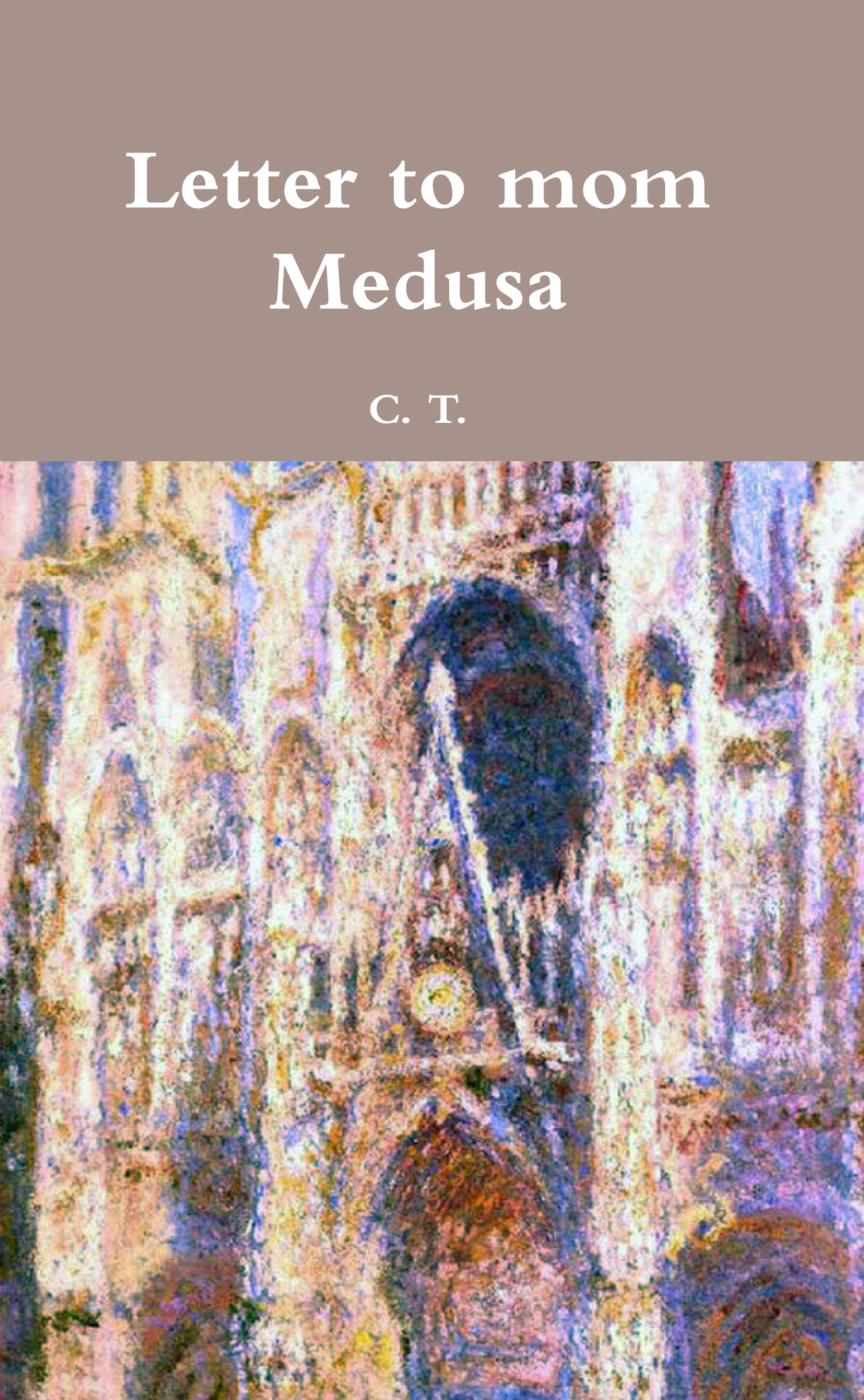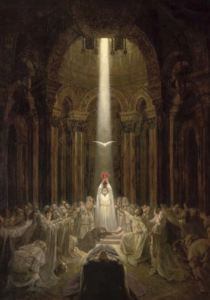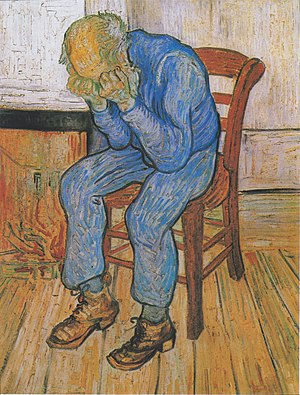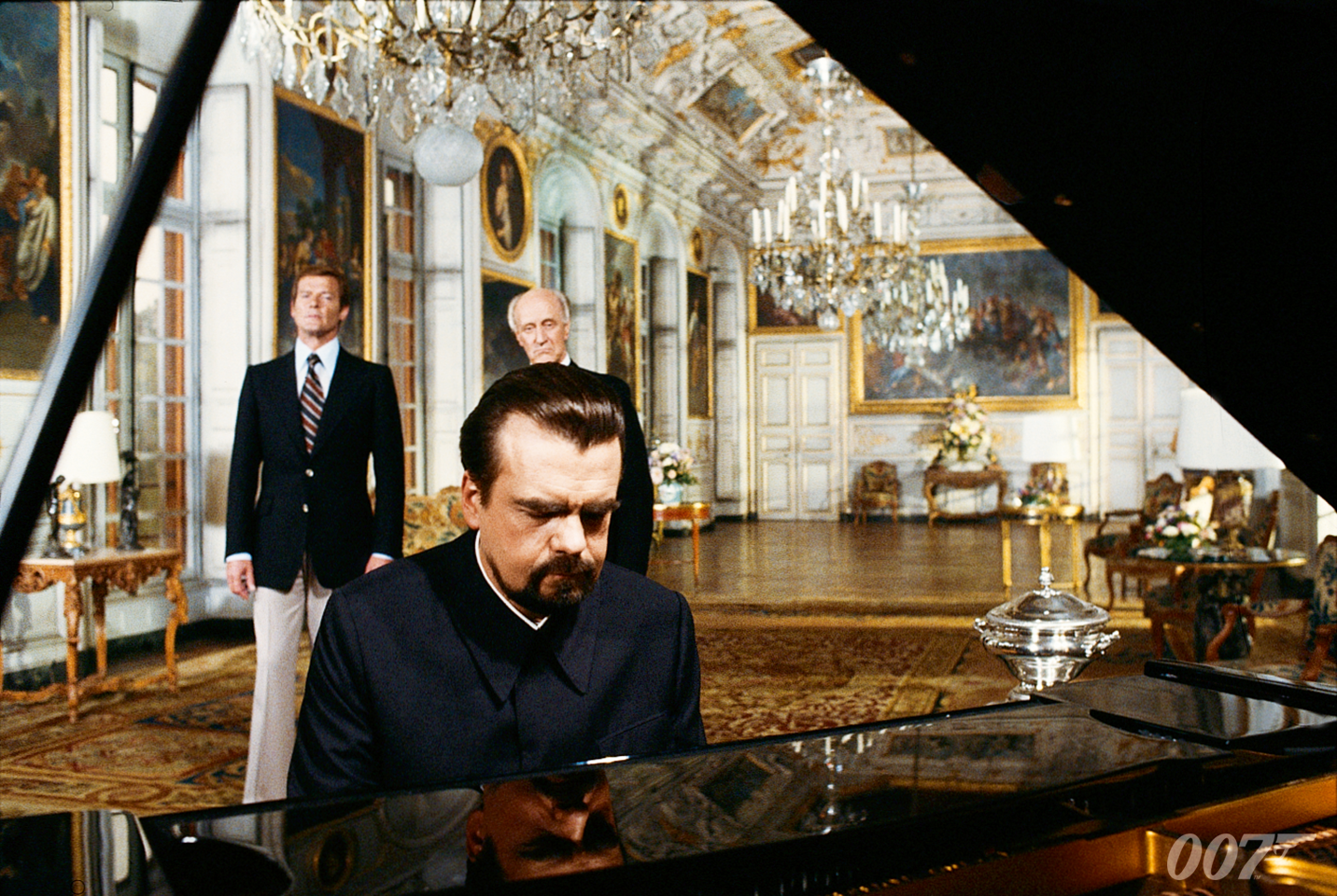 Dass die frühchristliche kommunistische Praxis moralisch verpflichtend war, wird durch zahlreiche Passagen aus dem Neuen Testament belegt. Nach 1. Johannes 3,16–17 werden wahre Gläubige ihr Leben für das Wohl anderer opfern, insbesondere indem sie Bedürftigen helfen; wer sich weigert, dies zu tun, kann nicht behaupten, ein moralisch einwandfreier Christ zu sein.
Dass die frühchristliche kommunistische Praxis moralisch verpflichtend war, wird durch zahlreiche Passagen aus dem Neuen Testament belegt. Nach 1. Johannes 3,16–17 werden wahre Gläubige ihr Leben für das Wohl anderer opfern, insbesondere indem sie Bedürftigen helfen; wer sich weigert, dies zu tun, kann nicht behaupten, ein moralisch einwandfreier Christ zu sein.
In der vornizäischen Kirche war die Gemeinschaft nicht nur geistlich, sondern schloss auch gegenseitige Hilfe in Form von konkreter materieller und wirtschaftlicher Unterstützung ein. Der kanonische Jakobusbrief definiert wahre Religion als Fürsorge für „Waisen und Witwen“, eine alte hebräische Redewendung für die wirtschaftlich Benachteiligten. Diejenigen, die die Reichen gegenüber den Armen bevorzugen, anstatt beide gleich zu behandeln, sind Sünder, die Buße tun müssen. Sie haben gegen das große Gebot Jesu verstoßen: „Du sollst deinen Nächsten lieben wie dich selbst.“ Jakobus sagt, dass „Glaube ohne Werke tot ist“. Worin bestehen diese „Werke“? Wir erfahren, dass wahrer Glaube sich darin zeigt, dass man den Elenden der Erde zu essen gibt und sie kleidet. Wenn man sich weigert, dies zu tun, wird die eigene Identität als Christ in Frage gestellt.
Im 2. Korintherbrief liefert Paulus eine zusätzliche theologische Rechtfertigung für die frühchristliche kommunistische Praxis, indem er die „Kenosis“ Christi [Verzicht auf göttliche Attribute bei der Menschwerdung] als Bezugspunkt heranzieht. Von den Christen wurde erwartet, dass sie dem Beispiel Jesu folgen, der in seinem präexistenten Zustand „reich“ war, sich aber bereitwillig „arm machte“, damit die Gläubigen durch seine „Armut“ „reich“ werden konnten. Dies bedeutete, dass die reicheren christlichen Gemeinschaften moralisch verpflichtet waren, ihren Reichtum mit den ärmeren zu teilen. Der Zweck der Umverteilung von Reichtum von einer christlichen Gemeinschaft zur anderen, schreibt Paulus, war die Erreichung wirtschaftlicher Gleichheit zwischen den Gläubigen.
Die apostolische Identifizierung des „wahren Glaubens“ mit materieller Umverteilung führte zur Einrichtung des ersten Wohlfahrtssystems der Welt und einer zentral geplanten Binnenwirtschaft. Zwar gab es bereits vor den institutionalisierten christlichen kommunistischen Praktiken der ersten drei Jahrhunderte nach Christus eine Form des primitiven Kommunismus, doch waren diese kleinen Gemeinschaften griechischsprachiger Intellektueller oder jüdischer religiöser Fanatiker vorbehalten. Was den christlichen Kommunismus einzigartig machte, war sein moralischer Universalismus und seine nicht ethnozentrische Ausrichtung. Angesichts der egalitären Ausrichtung der frühchristlichen kommunistischen Ideologie sollte es nicht überraschen, dass das zentrale Organisationsprinzip der klassischen marxistischen Ökonomie, „Jeder nach seinen Fähigkeiten, jedem nach seinen Bedürfnissen“, wortwörtlich aus dem Neuen Testament übernommen wurde.
Der Marxismus-Leninismus, eine mörderische Ideologie des 20. Jahrhunderts, die zum Tod von über 100 Millionen Menschen weltweit führte, wurde direkt von den ethischen Aussagen des Neuen Testaments inspiriert. Dies ist eine Quelle großer Verlegenheit für den christlichen Religiösen. Zu ihrer Verteidigung betonen die Apologeten den freiwilligen Charakter der kommunistischen Praxis im frühen Christentum. Doch diese apologetische Ausflucht ist eindeutig anachronistisch. Freiheit, definiert als die Fähigkeit, ohne äußeren Zwang zu wählen, ist eine eindeutig moderne Idee, die von den Philosophien des Liberalismus nach der Aufklärung übernommen wurde. Diese Vorstellung von Freiheit bestätigt den souveränen Willen als einen, der sich selbst gehorcht, aber auch auf die grundlegenden Gesetze des freien Marktes reduziert werden kann. Dieses Freiheitsverständnis steht jedoch in diametralem Gegensatz zu demjenigen der antiken griechischen philosophischen Tradition. In diesem Kontext gibt es keine scharfe Unterscheidung zwischen freiwilligem Handeln und unfreiwilliger Verpflichtung; Individuen werden nicht als autonome Agenten mit einer Vielzahl von Wahlmöglichkeiten begriffen. Freiheit ist vielmehr die Fähigkeit, das Gute ungehindert zu verfolgen; nur ein gut funktionierender Wille, bei dem das Subjekt sein wahres Wesen voll erkannt hat, kann dies tun. Das Böse zu tun, widerspricht dem ordnungsgemäßen Funktionieren des Willens; es ist kein Ausdruck der individuellen Fähigkeit zur Freiheit. Niemand verweigert sich freiwillig dem Guten, sondern es mangelt ihm an einer ausreichenden moralischen Bildung oder an der entsprechenden Selbstbeherrschung.
Der Christ in der Antike war frei, kein Götzenfleisch anzubeten oder zu verzehren; er war nicht frei, das Gegenteil zu tun, denn dann hätte er nicht mehr das Gute verfolgt. Ein Christ, der gegen das Verbot des Götzendienstes verstieß, übte nicht legitimerweise seine Fähigkeit zur Willensfreiheit aus, auch wenn er ohne äußeren Zwang gegen das Verbot verstieß. Vielmehr war eine solche Handlung das Ergebnis moralischer Unwissenheit oder eines Irrtums. Dasselbe könnte man von der frühchristlichen Praxis des Kommunismus sagen. Dieser war nur in dem Sinne „freiwillig“, als dass die Christen aus freien Stücken ein moralisch annehmbares Ergebnis ihres Handelns anstrebten. Wenn Freiheit das ungehinderte Streben nach dem Guten bedeutet, waren die Christen moralisch verpflichtet, sich an den kommunistischen sozioökonomischen Praktiken der Kirche zu beteiligen, da sie sonst vor Gott nicht als rechtschaffen gegolten hätten.
Die christlichen Ursprünge des modernen Liberalismus und Sozialismus
Die „antizipatorischen“ Folgen der spirituellen Gleichheit bedeuteten für die Kirche soziale und wirtschaftliche Gleichheit, was in den frühen christlichen Gemeinden zur Einführung eines formellen Kommunismus führte. Dabei handelte es sich nicht nur um Philanthropie, sondern um ein hochgradig organisiertes soziales Wohlfahrtssystem, das die Umverteilung von Wohlstand maximierte. Der frühchristliche Kommunismus war weit verbreitet und überdauerte Jahrhunderte, wobei er sowohl geografische als auch ethnisch-kulturelle Grenzen überschritt. Die kommunistischen Praktiken der vornizäischen Kirche wurzelten in der Jesus-Tradition des ersten Jahrhunderts. Die Existenz des frühchristlichen Kommunismus ist von Seiten der vornizäischen Väter und zeitgenössischer Heiden gut belegt.
Nachdem das Christentum zur offiziellen Staatsreligion geworden war, wurde die Kirche zunehmend hierarchischer, da die kirchlichen Funktionen mit denen der kaiserlichen Bürokratie verschmolzen wurden. Die kommunistischen sozioökonomischen Praktiken der frühen Kirche wurden von den mittelalterlichen Christen aufgegeben. An ihre Stelle trat eine Sichtweise, die Ungleichheit als statisch ansah, als Ergebnis einer „großen Kette des Seins“, die die Dinge vom niedrigsten bis zum höchsten Punkt ordnete. Die große Kette wurde von Theologen benutzt, um die streng geschichtete Gesellschaftsordnung, die aus der Asche der alten römischen Welt entstanden war, kosmologisch zu rechtfertigen. Sie verlieh dem Feudalsystem in Europa einen Anstrich von ideologischer Legitimität. In der großen Kette stand der Stellvertreter Christi, der Papst, an der Spitze, gefolgt von den europäischen Monarchen, dem Klerus, dem Adel und, ganz unten, dem landlosen Bauerntum. Dies führte dazu, dass die geistige Gleichheit als „antipathetisch“ angesehen wurde. Der heilige Thomas von Aquin lieferte eine weitere Rechtfertigung für die Ungleichheit aus rein teleologischen Gründen. In der Summa Contra Gentiles spiegeln Vielfalt und Verschiedenheit in der Schöpfung die von Gott geschaffene harmonische Ordnung wider. Bestünde das Universum nur aus gleichen Dingen, gäbe es nur eine Art von Gut, was der Schönheit und Vollkommenheit der Schöpfung abträglich wäre.
Bis zur Reformation im 16. Jahrhundert herrschte die antipathetische Sichtweise der christlichen Gleichheit vor. Martin Luthers ikonischer Akt – das Anschlagen der 95 Thesen an die Tür des Wittenberger Schlosses im Jahr 1517 – leitete eine kirchliche Autoritätskrise ein, die enorme Auswirkungen auf die Zukunft der abendländischen Geschichte haben sollte. Der Papst war nicht mehr der oberste Vertreter Christi auf Erden, sondern ein unrettbar korrupter Tyrann, der die Kirche mutwillig in die Wüste geistlichen Vergessens und des Irrtums gestürzt hatte.
Der Zugang zu bisher unbekannten Werken der antiken Wissenschaft und Philosophie vermittelte einer gebildeten Öffentlichkeit die heidnischen Erkenntniswerte, die den Weg für die wissenschaftliche Revolution des 17. Jahrhunderts ebneten. Der humanistische Ruf „ad fontes!“ wurde von den Reformatoren eifrig aufgegriffen. Er ermöglichte es ihnen, die scholastischen hermeneutischen Grundsätze (z. B. die Quadriga) und die wichtigsten Lehren des mittelalterlichen Christentums zu untergraben. Die Wiederentdeckung zuverlässigerer Bibelhandschriften war ein wichtiger Katalysator für die Reformation.
Reformierte Theologen, bewaffnet mit humanistischen textuellen und philologischen Methoden, studierten das Neue Testament und die vornizäischen Väter in den Originalsprachen. Dies führte zu einer christlichen „Renaissance“, einer Wiederentdeckung der frühchristlichen Welt. Verglichen mit der laxen Moral und der geistigen Gleichgültigkeit des spätmittelalterlichen Klerus erschienen die ersten vier oder fünf Jahrhunderte der Urkirche wie ein goldenes Zeitalter, das die lehrmäßige Reinheit der christlichen Orthodoxie bis zu Papst Gregor I. bewahrte, unbelastet von den groben Verzerrungen der scholastischen Theologie und der kirchlichen Tradition. Frühchristliche Lehren und Praktiken, die während des Mittelalters in Vergessenheit geraten waren, wurden unter den Protestanten wieder populär.
Die Reformatoren versuchten, den Geist des Urchristentums wiederzuerlangen, indem sie egalitäre und majoritäre Grundsätze in ein frühneuzeitliches kirchliches Umfeld einbrachten. Der egalitäre Gedanke wurde erstmals in Luthers Lehre vom allgemeinen Priestertum aller Gläubigen zum Ausdruck gebracht. Im Gegensatz zur mittelalterlichen christlichen Lehre, die den Klerus als Mitglied einer geistlichen Aristokratie betrachtete, erklärte Luther alle Christen gleichermaßen zu Priestern vor Gott, wobei jeder die gleiche Fähigkeit habe, zu predigen und den Mitgläubigen zu dienen. Auf dieser Grundlage forderte Luther ein Ende der unterschiedlichen Behandlung von Klerus und Laien im Kirchenrecht. Er verteidigte auch das Mehrheitsprinzip, indem er das Vorrecht der römischen Kirche anzweifelte, Geistliche für christliche Gemeinden zu ernennen. Calvin, der andere große reformierte Führer, erkannte die realen Folgen der geistlichen Gleichheit an, betrachtete sie unter dem Blickwinkel der universellen Gleichheit in der totalen Verdorbenheit.
Protestantische Radikale betrachteten die egalitäre Politik der reformierten Hauptkirchen als grundlegend unzureichend; jede konkrete Verwirklichung christlicher geistlicher Gleichheit setzte eine groß angelegte Wiederbelebung der kommunistischen sozioökonomischen Praktiken der Urkirche voraus. Müntzer, ein früher Schüler Luthers, ist repräsentativ für diese radikalere egalitäre Version des Evangeliums. Im Jahr 1525 ergriff eine Gruppe religiöser Fanatiker, zu denen auch Müntzer gehörte, die Macht über Mühlhausen in Thüringen. Während ihrer kurzen Herrschaft über die Stadt setzten sie das Programm der Elf Artikel um, ein revolutionäres Dokument, das soziale Gerechtigkeit und die Beseitigung der Armut forderte. Heiligenbilder wurden zerschlagen, Mönche aus ihren Klöstern vertrieben und Klostergüter beschlagnahmt und an die Armen verteilt. Von der Kanzel aus hielt Müntzer feurige Predigten, in denen er seine Gemeinde aufforderte, den „Götzen“ des Privateigentums abzuschaffen, wenn sie wünschten, dass der „Geist Gottes“ unter ihnen wohne. Als Anführer des Bauernkriegs in Deutschland wurde er im Mai 1525 gefangen genommen, nachdem sein Heer bei Frankenhausen besiegt worden war. Er wurde gefoltert und dann hingerichtet, aber nicht bevor seine Entführer ihm das Bekenntnis entlocken konnten: Omnia sunt communia [„Alles gehört allen“]. Ob das Bekenntnis die genauen Worte Müntzers wiedergibt, ist umstritten; es spiegelt jedoch Müntzers antimaterialistische Frömmigkeit und seine Auffassung, dass die Lehren des Evangeliums in vollem Umfang umgesetzt werden sollten, genau wider.
Der Münsteraner Aufstand von 1534–1535, der von Jan Matthys und Johann von Leiden angeführt wurde, war in seinem Radikalismus noch viel extremer. Nach der Eroberung der Stadt durch die Täufer erklärte Matthys Münster zum Ort des neuen Jerusalem. Katholiken und Lutheraner wurden daraufhin aus der Stadt vertrieben, ihr Eigentum beschlagnahmt und von Diakonen, die Matthys sorgfältig ausgewählt hatte, „nach ihren Bedürfnissen„ an die Armen verteilt. Sie machten sich daran, den Bewohnern der Stadt den primitiven Kommunismus der frühen Kirche aufzuerlegen. Das Geld wurde abgeschafft; die eigenen Wohnungen wurden zum öffentlichen Eigentum aller Gläubigen; die Menschen wurden gezwungen, in Gemeinschaftsküchen und -speisesälen zu kochen und zu essen, in Anlehnung an die frühchristlichen „Liebesmähler“. Ominöserweise ordneten Matthys und Johann sogar die Massenverbrennung aller Bücher mit Ausnahme der Bibel an. Dies sollte den Bruch mit der sündigen Vergangenheit und den Beginn einer neuen kommunistischen Ära symbolisieren, ähnlich wie das Jahr Eins des französischen revolutionären Nationalkonvents. Im Herbst 1534 schaffte die von den Täufern beherrschte Stadt Münster offiziell allen privaten Besitz innerhalb der Stadtgrenzen ab. Aber die Täuferkommune sollte nicht lange Bestand haben. Nach einer langen Belagerung wurden die Rädelsführer der Täufer, darunter Johann von Leiden, gefangen genommen, gefoltert und dann vom Bischof von Münster hingerichtet.
Die Diggers (oder „True Levellers“) und die Levellers (oder „Agitators“), die während der englischen Bürgerkriege (1642–1651) und des Protektorats (1653–1659) aktiv waren, wurden stark von der urchristlichen Lehre beeinflusst. Die von Gerard Winstanley gegründeten Diggers waren von den kommunistischen sozioökonomischen Praktiken der frühen Christen inspiriert. Sie versuchten, den Agrarkommunismus in England zu etablieren, wurden dabei jedoch von wohlhabenden Landwirten und lokalen Regierungsbeamten, die sie als Atheisten und Wüstlinge abtaten, oft gewaltsam bekämpft. Die einflussreicheren Levellers, eine radikale puritanische Gruppierung, versuchten, England durch die Einführung einer Politik der religiösen Toleranz und des allgemeinen Männerwahlrechts grundlegend zu demokratisieren. Ihre Ablehnung der monarchischen Willkürherrschaft von König Karl I. zugunsten einer egalitären Demokratie beruhte letztlich auf christlich-theologischen Prämissen. Prominente Levellers wie der „Freigeborene“ John Lilburne vertraten auf der Grundlage ihrer exegetischen Auslegung des Buches Genesis demokratische, egalitäre Grundsätze. Alle Menschen seien gleich geschaffen, und niemand habe mehr Macht, Würde und Autorität als ein anderer im Garten Eden. Da niemand das Recht habe, Autorität über andere auszuüben, könne nur die Volkssouveränität rechtmäßig als Grundlage für eine Zivilregierung dienen. Viele Vorschläge der Leveller, die im Agreement of the People niedergeschrieben waren, wurden in die englische Bill of Rights von 1689 aufgenommen. Dieses Dokument beeinflusste später die amerikanische Bill of Rights von 1791.
John Locke war der Begründer des modernen Liberalismus, einer politischen Tradition, die von christlichen religiösen Dogmen durchdrungen ist. Er leitete aus der christlichen geistigen Gleichheit viele soziale und politische Implikationen ab. Sein Glaube an die Gleichheit wurzelte in der festen Überzeugung, dass alle Menschen nach dem Bilde Gottes geschaffen wurden und damit von Natur aus gleich sind. Kirchenväter und mittelalterliche Theologen hatten lange Zeit argumentiert, dass alle Menschen, ob Sklaven oder Freie, „von Natur aus gleich“ seien, dass aber die soziale Ungleichheit unter den Menschen die Strafe Gottes für die Sünde sei. John Locke stimmte mit den patristischen und mittelalterlichen Autoren in Bezug auf die natürliche Gleichheit überein, lehnte aber deren Heranziehung der Erbsünde zur Rechtfertigung der passiven Akzeptanz der sozialen und wirtschaftlichen Ungleichheit der Menschen ab. Wie die protestantischen Reformatoren vor ihm glaubte er, dass die geistige Gleichheit nicht nur eschatologisch sei, sondern auch bestimmte Auswirkungen auf die reale Welt von weitreichender politischer Bedeutung mit sich bringe.
Lockes Argument für die universelle Gleichheit stützte sich auf eine sorgfältige historische und exegetische Auslegung der biblischen Erzählung. Die Erschaffung des Menschen nach Gottes Ebenbild hatte enorme Auswirkungen auf seine politische Theorie, insbesondere was seine Ansichten über das Wesen der bürgerlichen Regierung und den Umfang ihrer Autorität anbelangt. Ausgehend von seiner Lesart der Genesis argumentierte Locke, dass kein Mensch das Recht habe, andere Mitglieder der menschlichen Spezies zu beherrschen und auszubeuten. Der Mensch war von Gott geschaffen, um die Herrschaft über das Tierreich auszuüben. Im Gegensatz zu den Tieren, die von Natur aus minderwertig sind, kann es unter den Menschen keine Unterwerfung geben, da ihre Zugehörigkeit zur Gattung das Gepräge eines „allmächtigen und unendlich weisen Schöpfers“ trägt. Das bedeutet, dass alle Menschen von Natur aus frei und unabhängig geboren werden. Lockes Auffassung von der universellen Gleichheit bedeutete ferner, dass alle Menschen „im Besitz der gleichen Fähigkeiten“ waren. Obwohl sich die Menschen in Bezug auf ihre intellektuelle Ausstattung grob unterschieden, besaßen sie alle eine niedrige intellektuelle Fähigkeit, die es ihnen ermöglichte, abstrakte Ideen zu verarbeiten und die Existenz eines höchsten Wesens logisch zu begründen.
Locke vertrat die Auffassung, dass alle staatlichen Befugnisse auf der Zustimmung der Wählerschaft beruhen müssen. Dies war eine Erweiterung seines Glaubens an die natürliche Gleichheit der Menschen. Jeder Machtmissbrauch durch gewählte Vertreter sollte, nachdem alle gerichtlichen und politischen Möglichkeiten ausgeschöpft waren, durch eine bewaffnete Revolution behoben werden. Dies würde den Menschen die ursprüngliche Freiheit zurückgeben, die sie im Garten Eden hatten. Die Freiheit von der Tyrannei würde es ihnen ermöglichen, eine Regierung zu wählen, die dem Willen des Volkes besser entspricht.
Lockes Naturrechtstheorie stützte sich auf die biblischen Vorstellungen von einer idyllischen Vorgeschichte im Garten Eden. Im Gegensatz zu Monarchietheoretikern wie Filmer war die früheste gesellschaftliche Organisation des Menschen nicht hierarchisch, sondern egalitär und demokratisch. Wenn alle Menschen gleich geschaffen wurden, hatte niemand das Recht, jemandem das Leben, die Freiheit und das Privateigentum zu entziehen. In der politischen Philosophie von Locke sind Rechte im Wesentlichen moralische Verpflichtungen mit christlich-religiösen Untertönen. Wenn die Menschen verpflichtet waren, bestimmte natürliche Rechte an die bürgerliche Regierung abzutreten, dann nur, weil sie gemeinsam besser für das allgemeine Wohl verwaltet werden konnten. Die Rechte, die nicht aufgegeben werden konnten, galten als Grundfreiheiten, wie das Recht auf Leben und Privateigentum.
Christliche Schriftsteller der frühen Neuzeit haben sich detailliert vorgestellt, wie eine ideale kommunistische Gesellschaft aussehen und wie sie funktionieren würde. Die früheste kommunistische Literatur entstand in einem christlich-religiösen Kontext. Ein berühmtes Beispiel ist Thomas Morus Utopia aus dem Jahr 1516, das sich mehr den patristischen Idealen des Kommunismus und der klösterlichen Gleichheitspraxis verdankt als Platons Republik. Ein weiteres explizit kommunistisches Werk ist das Buch Der Sonnenstaat des Dominikanermönchs Tommaso Campanella aus dem Jahr 1602. Diese Werke bilden eine wichtige Brücke zwischen dem vormodernen christlichen Kommunismus und dem „utopischen“ und „wissenschaftlichen“ Sozialismus des 19. Jahrhunderts. Zum ersten Mal in der Geschichte lieferten diese Schriften eine eingehende Kritik der sozioökonomischen Bedingungen der zeitgenössischen europäischen Gesellschaft und wiesen darauf hin, dass es nur durch die Einführung eines kommunistischen Systems möglich sein würde, die humanistischen Ideale der Renaissance vollständig zu verwirklichen. Sie gingen über die Vergemeinschaftung des Eigentums in isolierten patriarchalischen Gemeinschaften hinaus und sahen die Umwandlung großer politischer Einheiten in einheitliche wirtschaftliche Organismen vor. Diese sollten durch soziales Eigentum und demokratische Kontrolle gekennzeichnet sein. Diesen Schriften lag die Annahme zugrunde, dass nur die Macht des Staates eine gerechte und humanitäre Gesellschaftsordnung herbeiführen könne.
Der „utopische“ oder vormarxistische Sozialismus war eine wichtige Etappe in der Entwicklung der modernen linken Ideologie. Seine wichtigsten Vertreter, Blanc, Cabet, Fourier, Saint-Simon und Owen, waren entweder gläubige Christen oder Männer, die von den sozioökonomischen und ethischen Lehren des Urchristentums zutiefst beeinflusst waren. Sie betrachteten Jesus von Nazareth oft als großen sozialistischen Führer. In der Regel glaubten sie, dass ihre Version des Kommunismus eine getreue Umsetzung der evangelischen Botschaft Jesu sei. In der vormarxistischen Sichtweise war der Urkommunismus der frühen christlichen Kirche ein Ideal, das es zu umarmen und nachzuahmen galt. Viele dieser Autoren verteidigten ihre kommunistischen Überzeugungen sogar durch ausführliche Zitate aus dem Neuen Testament.
Louis Blanc sieht in Jesus Christus den „erhabenen Meister aller Sozialisten“ und im Sozialismus das „Evangelium in Aktion“. Etienne Cabet, der Gründer der Ikarier-Bewegung, setzt das wahre Christentum mit dem Kommunismus gleich. Wenn der Ikarismus die irdische Verwirklichung der Vision Jesu von einem kommenden Gottesreich sei, sei es unerlässlich, dass alle Kommunisten „Jesus Christus und seine Lehre bewundern, lieben und anrufen“. Charles Fourier, ein früher Begründer des modernen Sozialismus, betrachtete Jesus Christus und Isaac Newton als die beiden wichtigsten Figuren bei der Entwicklung seines Glaubenssystems. Er verankerte seine sozialistische Ideologie ganz in der christlichen Tradition. Als einziger wahrer Nachfolger Jesu Christi fühlte sich Fourier als „Tröster“ (Johannes 14,26) auf die Erde gesandt, als „Messias der Vernunft“, der die gesamte Menschheit im Sinne sozialistischer Industrie rehabilitieren würde.
Henri de Saint-Simon, ein weiterer wichtiger Begründer des modernen Sozialismus, glaubte, dass das wahre Evangelium Christi ein Evangelium der Demut und Gleichheit sei. Er trat für ein „neues Christentum“ ein, das die praktischen und wirtschaftlichen Implikationen der von Jesus gepredigten gerechten Weltordnung verwirklichen sollte. Saint-Simon war auch ein früher Vorläufer der Bewegung des Sozialen Evangeliums, die versuchte, soziales Leid durch die Anwendung christlicher ethischer Grundsätze zu mildern. Der frühe walisische Begründer des modernen Sozialismus, Robert Owen, stand zwar dem organisierten Christentum und anderen etablierten Religionen feindselig gegenüber, betrachtete seine Version des Sozialismus jedoch als „wahres und echtes Christentum, befreit von den Irrtümern, die ihm anhafteten. Nur durch die Praxis des Sozialismus könnten die „unschätzbaren Gebote des Evangeliums“ in der heutigen Industriegesellschaft voll verwirklicht werden.
Die ersten Pioniere des Sozialismus, die alle auf christlich-religiösen Grundsätzen beruhende sozioökonomische Ansichten vertraten, übten einen tiefgreifenden und nachhaltigen Einfluss auf Marx aus. Seine neochristlichen religiösen Überzeugungen müssen als der einzige wirkliche historische Nachfolger des orthodoxen Christentums angesehen werden, vor allem weil seine Ideologie zur Umsetzung der christlichen sozioökonomischen Lehren in einem bis dahin unvorstellbaren Ausmaß führte. Müntzer, die radikalen Wiedertäufer und andere christliche Kommunisten werden als wichtige Vorläufer der modernen sozialistischen Bewegungen des 19. und 20. Jahrhunderts. In Friedrich Engels’ kurzer Monographie Der Bauernkrieg in Deutschland wird Müntzer beispielsweise als der Mann verewigt, dessen religiöse und politische Ansichten seiner Zeit weit voraus waren. Er verfügte sogar über ein weitaus ausgefeilteres „theoretisches Rüstzeug“ als die vielen kommunistischen Bewegungen der Zeit von Engels.
Die primitive kommunistische Umwandlung der sozioökonomischen Ordnung unter dem Christentum basiert auf 1.) der Beseitigung aller ethnisch-sprachlichen und sozioökonomischen Unterschiede zwischen den Menschen (Einheit in Christus) und 2.) der grundlegenden geistigen Gleichheit aller Menschen vor Gott; sie ist das Spiegelbild der modernen kommunistischen Umwandlung der sozioökonomischen Ordnung unter der klassischen marxistischen Ideologie, die auf 1.) der Beseitigung aller Klassenunterschiede zwischen den Menschen und 2.) einer grundlegenden „Gleichheit“ des Zugangs zu gemeinschaftlichen Ressourcen an landwirtschaftlichen Erzeugnissen und Industriegütern basiert. Die zahlreichen Ähnlichkeiten zwischen dem christlichen Kommunismus und dem Marxismus sind zu auffällig, als dass sie rein zufällig sein könnten. Ohne den dominierenden Einfluss des Christentums wäre der Aufstieg des modernen Kommunismus und Sozialismus unmöglich gewesen.
Die protestantische Reformation des 16. Jahrhunderts verbindet den sozioökonomischen Egalitarismus der frühen christlichen Gemeinschaften mit dem sozioökonomischen Egalitarismus des modernen Westens. Als religiöse Massenbewegung, die im späten Mittelalter begann, hat sie den Verlauf der westlichen Zivilisation tiefgreifend beeinflusst. Die Reformation spielte eine entscheidende Rolle bei der anfänglichen Formulierung und Verbreitung der liberalen und sozialistischen Formen des egalitären Denkens, die heute die dominierenden Staatsreligionen der modernen westlichen „Demokratien“ sind. Ohne Luther und den Massenaufruhr, der in seinem Gefolge stattfand, wäre die christliche geistige Gleichheit eine eschatologische Tatsache geblieben, die keinen direkten Einfluss auf die moderne säkulare Welt gehabt hätte.
Spenglers Feststellung, dass „die christliche Theologie die Großmutter des Bolschewismus ist“, ist eine Binsenweisheit. Alle Formen des westlichen Kommunismus haben ihre Wurzeln in der christlichen Tradition. Das Gleiche gilt für das liberale egalitäre Denken, das ebenfalls in einem christlich-religiösen Milieu formuliert wurde.
Karl Marx, Hauptinterpret des „protestantischen Aquinas“
Die marxistische Ideologie ist weder rational erklärbar noch empirisch überprüfbar. Das bedeutet, dass der Marxismus nicht revidiert werden kann, wenn sich seine Prophezeiungen nicht bewahrheiten oder seine Kardinallehren widerlegt werden; stattdessen ist der marxistische Ideologe wie der christliche Religiöse gezwungen, sich auf eine hirnverbrannte Apologetik einzulassen, um eine dünne Verblendung ideologischer Seriosität aufrechtzuerhalten. Trotz der Behauptung, „wissenschaftlich“ zu sein, erfordert der Marxismus eine starre Lehrmeinung, die die Exkommunikation von Ketzern verlangt, die vom etablierten Glaubensbekenntnis abweichen. Der Marxismus ist in der Tat ein neochristlicher religiöser Kult mit eigenen Propheten, Erlösern, heiligen Büchern, heiligen Tagen und heiligen Stätten sowie heiligen Ritualen und Andachtsmusik.
Der Marxismus hat dieselben Grundlehren wie das Christentum, wenn auch in einem materialistischen Gewand. Der Garten Eden findet sein marxistisches Gegenstück in der egalitären Gesellschaftsordnung, die der Entstehung der Zivilisation vorausging. Zum paradiesischen Sündenfall kommt es durch den Ungehorsam von Adam und Eva; in der marxistischen Weltanschauung erfolgt der Fall mit der Einführung der Arbeitsteilung. Im Christentum gibt es den Teufel, im Marxismus ist der Bösewicht der Kapitalist. Der historische Materialismus von Marx ist lediglich der eschatologische Rahmen der christlichen Orthodoxie in säkularisierter Form. Im Christentum wirkt Gott durch die Geschichte, um die Auserwählten zu erlösen. Dies führt zu einem apokalyptischen Showdown zwischen den Mächten des Guten und des Bösen, der tausendjährigen Herrschaft Christi und der Wiederherstellung utopischer Verhältnisse auf der Erde. Die gleiche teleologische Sicht der Geschichte findet sich in der marxistischen Ideologie. Die inneren Widersprüche innerhalb des Kapitalflusses lösen sich zugunsten der Befreiung des Proletariats von der kapitalistischen Ausbeutung auf. Die kontinuierliche Verwertung und Konzentration der finanziellen Ressourcen in den Händen der Kapitalisten in Verbindung mit der „Verelendung“ des Proletariats führen zu apokalyptischen Bedingungen oder zur „Revolution“. Dies führt zum Sturz der Kapitalisten, zur Beschlagnahme der Produktionsmittel, zur Diktatur des Proletariats und schließlich zur Errichtung des kommunistischen Paradieses am Ende der Geschichte.
Marxens Geschichtsauffassung ist so tief im Christentum verwurzelt, dass seine Philosophie passender als ein Zweig des liberalen Protestantismus zu bezeichnen wäre. Dies würde Marx in eine christliche theologische Tradition einordnen, die mit dem Juden Saulus von Tarsus beginnt. Selbst Marx’ Atheismus schließt ihn nicht aus der christlichen Tradition aus; die Dialektik in Marx’ Geschichtsphilosophie hat dieselbe Funktion wie die dreieinige Gottheit des Christentums; beides sind abstrakte Instanzen, deren Zweck es ist, den Heilsplan der Geschichte in einem apokalyptischen Konflikt zu seiner endgültigen Vollendung zu bringen und die gesamte Menschheit in ein imaginäres goldenes Zeitalter zurückzuführen, das einst in der fernen Vergangenheit existierte. Wie die Urchristen und ihre reformierten Erben führt Marx die antizipatorische Sicht der geistigen Gleichheit der Menschen zu ihrem letzten logischen Schluss.
Woher hat der Marxismus seinen Charakter als eine säkularisierte Version des christlichen Evangeliums? Die philosophische Methode des dialektischen Materialismus, der Eckpfeiler, auf dem das gesamte Gebäude des „wissenschaftlichen“ Sozialismus errichtet wurde, leitet sich von Hegels Gebrauch der Dialektik in der Phänomenologie des Geistes ab. Hegel, der wegen seiner Systematisierung und Vereinheitlichung einer Vielzahl von Themen in der Philosophie und der christlichen Theologie als „protestantischer Aquin“ bezeichnet wird, konzipierte die Dialektik zuerst in seinen frühen theologischen Schriften. Philologisch und historisch belegt ist, dass Hegel, nachdem er sich als protestantischer Seminarist jahrelang in die Paulusbriefe vertieft hatte, den Begriff der Aufhebung aus Luthers Kommentar zum Römerbrief übernahm. Dies war Luthers Übersetzung des messianischen Begriffs katargesis in den Paulusbriefen. Hegel machte den Begriff zur grundlegenden Achse seiner Dialektik, weil Luthers Gebrauch von Aufhebung die doppelte Bedeutung des Aufhebens und Bewahrens hatte, wie das griechische Äquivalent katargesis.
Von größerer Bedeutung ist Hegels Rückgriff auf die protestantische trinitarische Theologie, um die zugrundeliegende Struktur der objektiven Realität zu erhellen. Für Hegel ist das Absolute die vollständige Totalität alles Existierenden; wenn man dies als Einheit betrachtet, ist das Absolute Gott oder das Selbstbewusstsein des Universums. Die Welt der Sinne und Erfahrungen ist notwendigerweise triadisch, weil sie als absoluter Geist die trinitarische Struktur der christlichen Gottheit widerspiegelt. Dies macht alles im bekannten Universum einer rationalen Erklärung zugänglich. Das „Mysterium“ hat in Hegels Version der protestantischen Theologie keinen Platz, weil der Glaube durch Wissen ersetzt wurde.
Hegels logisches System gliedert sich in drei Teile, die jeweils den drei Personen der Trinität entsprechen: I. Logik II. Natur III. Geist. Diese sind jeweils in drei weitere Kategorien unterteilt und so weiter, was Hegels Überzeugung widerspiegelt, dass jede Systematisierung von philosophischem und theologischem Wissen die zugrunde liegende triadische Struktur der objektiven Realität getreu widerspiegeln muss, um einen gewissen Grad an rationaler Kohärenz zu erreichen. Auch Hegels dialektische Methode, der Eckpfeiler seiner Philosophie, ist triadisch aufgebaut. Die Dialektik hat drei „Momente“: (1.) ein Moment der Festigkeit; (2.) ein dialektisches oder negativ rationales Moment und (3.) ein spekulatives oder positiv rationales Moment.
In Hegels dialektischem Dreiklang wird ein fester Begriff (erstes Moment) durch einen einseitigen oder einschränkenden Charakter (zweites Moment) instabil. Im Prozess der „Sublation“ (oder Aufhebung) wird der Begriff des ersten Moments überwunden und bewahrt, aber eine dem Begriff innewohnende Instabilität führt zur Schaffung seines direkten Gegenteils. Im dritten Moment entsteht aus der Negation der ursprünglichen Negation eine höhere rationale Einheit. Hegels teleologische Vision des historischen Prozesses entfaltet sich nach diesem dreistufigen dialektischen Prozess von Widerspruch, Aufhebung und Einheit der Gegensätze.

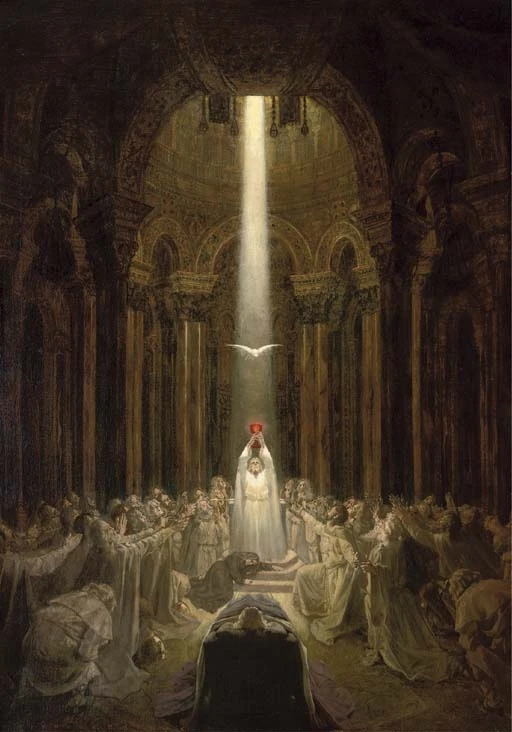
 Dass die frühchristliche kommunistische Praxis moralisch verpflichtend war, wird durch zahlreiche Passagen aus dem Neuen Testament belegt. Nach 1. Johannes 3,16–17 werden wahre Gläubige ihr Leben für das Wohl anderer opfern, insbesondere indem sie Bedürftigen helfen; wer sich weigert, dies zu tun, kann nicht behaupten, ein moralisch einwandfreier Christ zu sein.
Dass die frühchristliche kommunistische Praxis moralisch verpflichtend war, wird durch zahlreiche Passagen aus dem Neuen Testament belegt. Nach 1. Johannes 3,16–17 werden wahre Gläubige ihr Leben für das Wohl anderer opfern, insbesondere indem sie Bedürftigen helfen; wer sich weigert, dies zu tun, kann nicht behaupten, ein moralisch einwandfreier Christ zu sein.